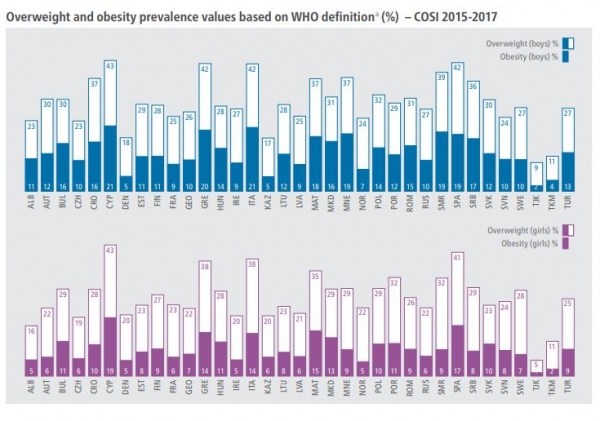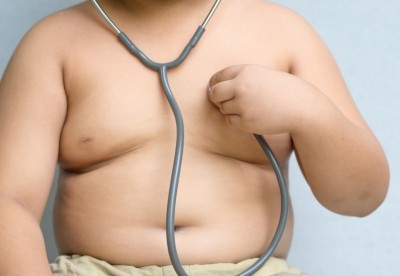The Mediterranean diet is gone, says WHO chief

It is frequently cited as one of the healthiest diets in the world thanks to a high proportion of fruit, vegetables, nuts, pulses and olive oil, and in 2013 it was added to UNESCO’s list of humanity’s intangible cultural heritage.
But, speaking at the European Congress on Obesity in Vienna this week, the Head WHO's European Office for the Prevention and Control of Non-communicable diseases (NCDs) João Breda declared it to be dead.
“The Mediterranean diet for the children in these countries is gone," he said. “There is no Mediterranean diet any more. Those who are close to the Mediterranean diet are the Swedish kids. The Mediterranean diet is gone and we need to recover it.”
Breda presented highlights of preliminary data from the WHO European Childhood Obesity Surveillance Initiative (or COSI), which show that children in Cyprus are the most overweight in Europe, with 43% of boys and girls overweight. Of these, 21% of boys and 19% of girls are obese.
This is closely followed by Greece, Italy and Spain where 42% of boys are overweight, and between 19 and 21% of these are considered obese. For girls, levels are slightly lower. Forty-one percent of Spanish girls and overweight (17% are obese) and 38% of girls in Greece and Italy are overweight, with 14% obese in both countries.
Northern European countries show lower levels of obesity with Denmark, Norway and Ireland at 5% but between around one fifth and a quarter of children are still considered to be overweight there (18%, 24% and 27% respectively.)
Tajikistan, Turkmenistan and Kazakhstan show the lowest levels with 2, 4 and 5% of boys obese but WHO warned that these countries are experiencing a nutrition transition, with children eating more Western-style processed foods high in salt, fat and sugar.
Nonetheless, the preliminary data show that levels in some of these countries are falling.
There was a “significant decrease” in the prevalence of both overweight and obesity recorded in Greece, Italy, Portugal and Slovenia as well as “a decreasing tendency” in Ireland and Spain.
Overweight and obesity are frequently measured using the body mass index (BMI), calculated by dividing a person's weight in kilograms by the square of his/her height in meters (kg/m2).
For children aged between 5–19 years, the WHO classifies overweight as a BMI-for-age greater than one standard deviation above the WHO Growth Reference median. Obesity is greater than two standard deviations above the WHO Growth Reference median.
COSI has collected and standardised weight and height measurements from over 300,000 children aged between six and nine years old in 53 countries every three years since 2010, building up a picture of the prevalence of overweight and obesity.
The WHO puts the Europe’s obesogenic environment down to the greater availability and affordability of energy-dense, nutrient-poor foods and drinks and lack of exercise.
In 2012, a study conducted by researchers from Italy’s Catholic University of Campobosso and published in the British Medical Journal found that of the 13,000 people living in Italy’s Molise region, those on the lowest incomes were least likely to adhere to a traditional Mediterranean diet.


























